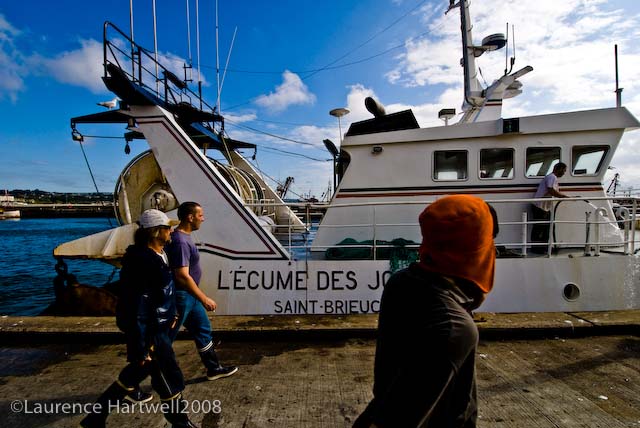The Ajax was one of two netters that consigned hake to this morning's market...
Alan's trip also included a few big bass...
a good shot of big dogs...
and the odd shark...
while beam trawl fish from the Trevessa IV included even more bass...
in addition to her big shot of cuttles...
and some superb ray...
while the netter Britannia V landed just the one big cod...
plenty of haddock...
some superb whiting...
and plenty of pollack...
as evidenced by the large box of roes landed...
the James RH picked up a few good lemons...
and a good run of plaice...
late to the market was the Padstow registered netter Charisma seen here taking on clean boxes after landing her fish ready for tomorrow morning's auction......
a visiting scalloper left a good shot of scallops bagged up and ready to go...
while mackerel...
were plentiful for the handful of boats that braved the heavy swell that found its way all round the coast over the weekend.











































